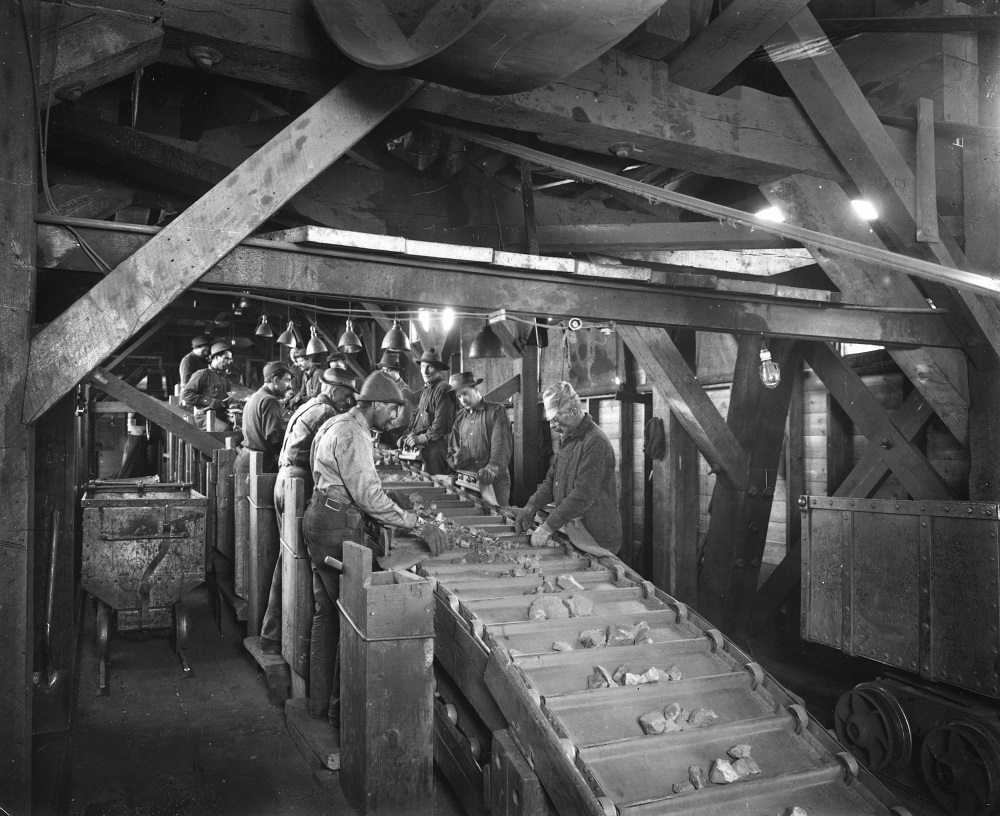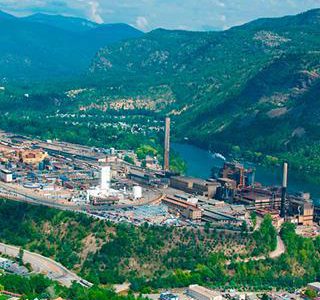Innovation Spurs Immigration - Differential Flotation Propels an Industry and Community
Teck Trail Operations is proud to commemorate 125 years of continuous smelting with an eight-part series that explores the company’s significant role in the region and industry, from the gold rush to becoming one of the world’s largest fully integrated zinc and lead smelting and refining complexes. Since 1896, visionary leadership, generations of skilled employees, adaptation, and industry-leading technological advancements in mining and smelting have helped the company achieve long-term success. Please enjoy this series that celebrates our legacy as Champions of Innovation.
Amidst an industrial upswing, the Trail smelter’s foundation was laid by stonemasons and bricklayers; but they weren’t the only ones cementing a place in history. Immigrant workers and their families established themselves in the growing town, building their homes and lives around the smelter and its good fortune.
As World War I dawned, it drove an increased demand for zinc and lead metal and a way to efficiently separate zinc and lead concentrates from the company’s Sullivan Mine in Kimberley. That’s when innovation—thedevelopment of differential flotation—would pave the way for the best use of the Sullivan ore body, and ensure low cost production and healthy profits for the smelter.
Initially at the Sullivan Mine in 1909, zinc and lead concentrates were separated by hand, which was a slow and inefficient process. This launched the effort to make separate lead and zinc concentrates that could be efficiently processed at the smelter.
In 1916, a pioneer Electrolytic Zinc Plant was completed at the smelter at the specific request of the Canadian government to supply zinc for brass in WWI. It was only one of two electrolytic zinc refineries in the world at the time. That year, 11,000 tonnes of refined zinc were produced, boasting a profoundly increased product yield and building momentum for further technological breakthroughs. The flourishing new plant supported employment opportunities for immigrants looking to start a new life in Canada.
Then, in 1917, a new recruit would prove to be the diamond in the rough for the company. Ralph Diamond had been working on flotation for the Anaconda Copper Company, and was interested in the problem posed by the Sullivan ore. Diamond and his team tested hundreds of chemical reagents, trying to find those that would selectively float the tiny particles of lead, then zinc, leaving behind the iron. This process became known as differential flotation.
In August 1920, Diamond announced his crowning technological success. Using selective flotation, his team made the commercial separation of Sullivan ore into lead, zinc and iron concentrates a reality. Thanks to his leadership skills and research accolades, Diamond went on to lead the western sector of the company as its Executive Vice President until his retirement.
“Differential flotation not only unlocked the treasures of the Sullivan’s rich ore that was refined at Teck Trail Operations, it also ensured the future of the smelter,” explains Carol Vanelli Worosz, the company’s Community Engagement Leader. “It was the first successful large-scale differential flotation operation in the world. The combination of a smelter near a large mine owned by the same company formed the basis for tremendous rapid growth and prosperity.”
This set the stage for immigrants who were moving to the area seeking work. Trail’s successful smelter appealed to people from around the world who introduced their cultural customs as they laid new roots in the town.
Differential flotation made it possible to maximize the valuable Sullivan ore and ensured low-cost production and good profits for decades to come. The strong commitment to technological development proved its worth and set the tone for the success of Teck Trail Operations to this day, and established the City of Trail as a thriving multicultural community.























Comments